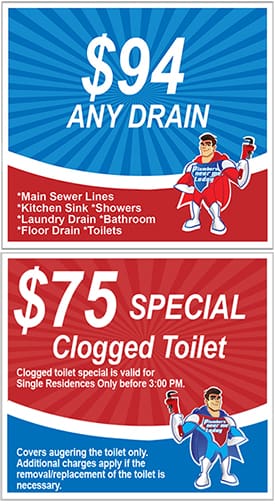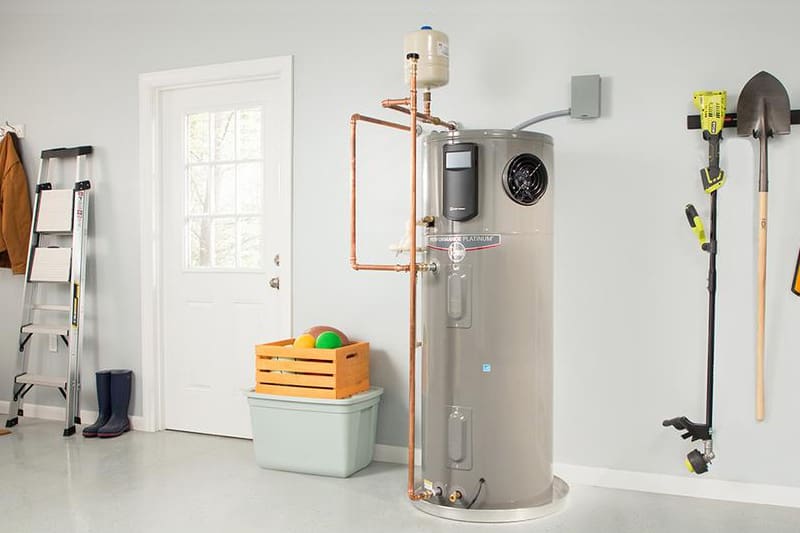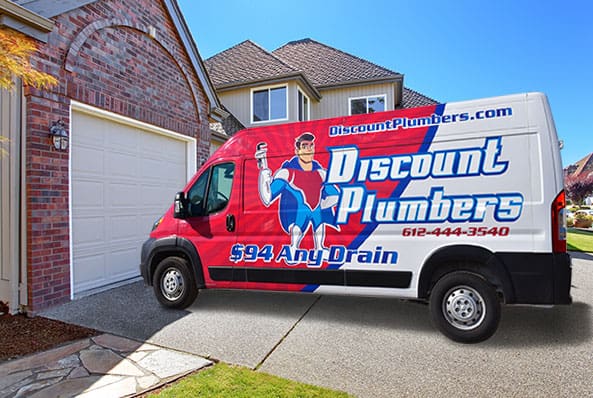Plummer
Plumming is an essential aspect of modern living, providing us with clean water for drinking, cooking, and washing. Plumbing is also responsible for removing waste from our homes and offices. However, like any other system, plumbing is susceptible to breakdowns and malfunctions, and that’s where a plumber comes in. In this article, we will discuss the role of a plumber, the types of plumbing services, common plumbing issues, and tips for hiring a good plumber.
What is a Plummer?
A plummer is a skilled tradesman who specializes in installing, repairing, and maintaining plumbing systems. Plumbers are trained to work with different types of pipes, valves, and fixtures to ensure the safe and efficient flow of water and gas in homes, offices, and other buildings.
Types of Plumbing Services
Plumbers offer a wide range of services to meet the diverse needs of their customers. Some of the most common plumming services include:
Installation of plumbing systems: Plumers install new plumbing systems in homes and offices, including water supply lines, sewer lines, and gas lines.
Repair of plumbing systems: Plumbers diagnose and fix plumbing problems, such as leaky faucets, clogged drains, and broken pipes.
Maintenance of plumbing systems: Plumbers perform routine maintenance tasks, such as cleaning drains, checking water pressure, and inspecting pipes for leaks.
Emergency plumbing services: Plumbers are available 24/7 to handle plumbing emergencies, such as burst pipes, overflowing toilets, and gas leaks.
Qualities of a Good Plummer:
When hiring a plumber, it’s essential to look for certain qualities that distinguish a good plumber from an average one. Some of the qualities to look for in a good plumber include:
Professionalism: A good plumber is courteous, punctual, and respects the customer’s property.
Knowledge and Experience: A good plumber has the skills and knowledge to diagnose and fix plumbing problems quickly and efficiently.
Licensing and Insurance: A good plumber is licensed and insured, which protects both the plumber and the customer in case of accidents or damages.
Communication Skills: A good plumber communicates clearly and effectively with the customer, explaining the problem, the solution, and the cost.
Problem-Solving Skills: A good plumber is a problem solver who can think creatively to find solutions to complex plumbing problems.
Tools Used by a Plumber:
Plumbers use a variety of tools to install, repair, and maintain plumbing systems. Some of the most common tools used by plumbers include:
Pipe wrenches: Used to tighten and loosen pipes and fittings.
Plungers: Used to unclog drains and toilets.
Drain snakes: Used to remove blockages from pipes.
Pipe cutters: Used to cut pipes to the desired length.
Blow torches: Used to solder pipes together.
Water pressure gauges: Used to check water pressure in pipes.
Leak detection equipment: Used to locate leaks in pipes.
Common Plumbing Issues and Their Solutions:
Plumbing issues can be frustrating and disruptive, but most can be resolved quickly with the help of a professional plumber. Some of the most common plumbing issues and their solutions include:
Leaky faucets: A plummer can fix a leaky faucet by replacing the washer or cartridge inside the faucet.
Clogged drains: A plumber can use a drain snake or hydro jetting to clear clogs in drains and pipes.
Running toilets: A plumber can repair a running toilet by replacing the flapper valve or adjusting the float arm.
Burst pipes: A plumber can replace a burst pipe and repair any resulting damage.
Low water pressure:
A plumber can diagnose and fix the cause of low water pressure, which may be due to clogs, leaks, or faulty fixtures.
Importance of Regular Plumming Maintenance:
Regular plumbing maintenance is essential to prevent plumbing issues and extend the lifespan of plumbing systems.
Some of the benefits of regular plumbing maintenance include:
Early detection of problems:
Regular maintenance allows plumbers to identify and fix small problems before they become major issues.
Improved efficiency: Regular maintenance ensures that plumbing systems are running at peak efficiency, which can reduce water and energy bills.
Increased lifespan: Regular maintenance can extend the lifespan of plumbing systems, saving homeowners and businesses money on costly repairs and replacements.
Tips for Hiring a Good Plumber:
When hiring a plumber, it’s important to do your research and choose a reputable and experienced professional.
Check credentials: Look for a licensed and insured plumber who has the necessary training and experience.
Read reviews: Check online reviews and ask for references to get an idea of the plumber’s reputation and customer satisfaction.
Get multiple quotes: Get quotes from several plumbers to compare prices and services.
Ask about warranties: Ask about warranties on parts and labor to ensure that you’re getting a quality job.
Communicate clearly: Communicate clearly with the plumber about the problem, the solution, and the cost to avoid misunderstandings.
How to Avoid Plumbing Emergencies:
While it’s impossible to completely prevent plumbing emergencies, there are some steps you can take to reduce the risk of a plumbing disaster.
Here are some tips for avoiding plumbing emergencies:
Practice good maintenance: Regular maintenance can prevent small problems from turning into big emergencies.
Avoid flushing non-flushable items: Only flush toilet paper and human waste down the toilet to prevent clogs.
Use drain guards: Use drain guards in sinks and showers to catch hair and other debris that can cause clogs.
Be careful what you put down the garbage disposal: Avoid putting fibrous or starchy foods, grease, and bones down the garbage disposal, which can cause clogs.
Know where the main shut-off valve is: In case of a plumbing emergency, it’s important to know where the main shut-off valve is and how to turn off the water supply.
Conclusion:
In conclusion, plumbing is an essential aspect of modern living, and plumbers play a crucial role in ensuring the safe and efficient flow of water and gas in homes, offices, and other buildings.
By understanding the types of plumbing services, the qualities of a good plumber, common plumbing issues and their solutions, the importance of regular plumbing maintenance, and tips for hiring a good plumber, homeowners and businesses can maintain healthy and functional plumbing systems for years to come.
FAQs:
What is the average cost of hiring a plumber?
The cost of hiring a plumber can vary widely depending on a number of factors such as the plumber’s experience, location, and the nature of the plumbing problem. According to HomeAdvisor, the average cost of hiring a plumber in the United States is about $300, but prices can range from $175 to $450 or more.
For simple jobs such as fixing a leaky faucet or unclogging a drain, the cost may be relatively low, perhaps $100 to $200. However, for more complex jobs such as installing a new water heater or repairing a damaged sewer line, the cost may be several hundred or even thousands of dollars.
Can I fix a leaky faucet myself?
Fixing a leaky faucet is a common household repair that can often be done yourself. The difficulty of the repair will depend on the type of faucet you have and the severity of the leak. However, in general, it is a relatively straightforward task that can be accomplished with the right tools and some basic knowledge.
If you are not comfortable with plumbing repairs, or if you are not sure about your ability to fix the faucet, it may be best to hire a professional plumber to do the job. A leaky faucet can waste a significant amount of water and can also cause damage to your plumbing fixtures over time, so it’s important to address the issue promptly.
How often should I have my plumbing system inspected?
It’s a good idea to have your plumbing system inspected at least once a year, even if you’re not experiencing any problems. Regular inspections can help detect any potential issues before they turn into major problems that require costly repairs.
In addition to annual inspections, it’s also a good idea to have your plumbing system inspected after any major changes or renovations to your home, such as the installation of a new appliance or the addition of a new bathroom.
If you notice any signs of plumbing problems such as slow draining sinks, foul odors, or water leaks, you should schedule an inspection right away. Early detection of plumbing issues can help prevent more extensive damage and save you money in the long run.
What are some common causes of low water pressure?
High demand: If many people in your area are using water at the same time, it can reduce the pressure for everyone.
Clogged pipes: Over time, mineral deposits, sediment, rust, or other debris can build up inside pipes and restrict the flow of water.
Leaks: Water leaks can reduce water pressure, especially if they are located near the main water line.
Faulty pressure regulator: A pressure regulator is a valve that controls the pressure of the water entering your home. If it is faulty, it can cause low water pressure.
Valve problems: Faulty or partially closed valves can restrict the flow of water and cause low pressure.
Water main break: A break in the main water line can cause a sudden drop in water pressure.
Water meter problems: Faulty or malfunctioning water meters can affect water pressure.
If you are experiencing low water pressure, it’s important to identify the cause so that you can fix the problem.
How long does a plumbing installation take?
The time it takes to complete a plumbing installation can vary widely depending on a number of factors, such as the complexity of the job, the size of the area being serviced, the type of materials being used, and the experience of the plumber doing the work.
For simple installations, such as replacing a faucet or toilet, the job can usually be completed in a few hours or less. More complex installations, such as installing new piping throughout a house or commercial building, can take several days or even weeks to complete.
It’s important to note that unexpected issues can arise during any plumbing installation, which can cause delays in the completion time. Experienced plumbers will do their best to anticipate potential issues and plan accordingly, but unforeseen circumstances can still occur.
If you have a specific plumbing installation in mind, it’s best to consult with a licensed plumber who can provide you with a more accurate estimate of the time and cost involved.
If you need plumber near me services, look no further than Discount Plumbers. We are located in Minneapolis, Minnesota but service 65 surrounding metro-areas.
Contact us today for free estimates.
- $94.00 To Clean Any Drain. Yes, Sewer Lines Too.
- Plumbing Jobs Done For 1/2 The Price Of Our Google Competition. See Our "Us vs Them" Page (click here)
- Quickest Response Time. Usually Within 2 Hours
- FREE ESTIMATES 7 Days a Week
- No "Weekend Charges". Same price 7 Days A Week
- Save Hundreds On Plumbing Calls. Why Pay More?
- No Job Too Big or Too Small. Leaks to Complete Re-pipes
- Read Our Reviews. We're Very Good At What We Do.





Stop getting ripped off! Check out our “Us Vs Them” page. See how we’re 1/2 their price. Learn why they need to charge so much. It’s enlightening.
$94 drain cleaning. Main Sewers Lines, Kitchen Sinks, Bathtubs, one low price seven days a week. Stop getting gouged by “Them”. Save your money.
Drain Cleaning - FAQ
A: $94 To clean any drain
A: Same Price, $94
A: Because they’re typically two – three times higher and they know you’ll hang up.
A: Nope, Same size equipment or better.
A: Usually within a couple hours.
A: Nope, same price seven days a week.


For plummer near me or plumbers minneapolis we can handle all your sewer and drain cleaning services in the Minneapolis area. Discount Plumbers® Minneapolis also offers a dedicated team of qualified professional plumbers ready to help with your faucets, toilets, garbage disposal, water heater and tub/shower valve issues. Our drain cleaning specials can’t be beat by any other plumber or rooter companies and we provide rapid response for your clogged drain, clogged toilet, clogged main line, sewer repair or even sump pump repair. Contact us today for $94 Drain Cleaners and Plumber services in the Minneapolis area.


